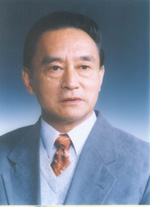The IASTED International Conference on
Modelling, Simulation and Identification
MSI 2009
October 12 – 14, 2009
Beijing, China
KEYNOTE SPEAKER
Hybrid Control Approach and Application to AEMS
Abstract
Objectives
Tutorial Materials
Background Knowledge Expected of the Participants
Biography of the Keynote Speaker

Qiang Lu graduated from the Electrical Engineering Department of Tsinghua University. He is an Academician of the Chinese Academy of Sciences, Foreign Member of the Royal Swedish Academy of Engineering Sciences, IEEE Fellow, professor of the Electrical Engineering Department of Tsinghua University, and part-time professor of Zhejiang University and Huazhong University of Science and Technology. In the past, he has been mainly engaged in the fields of Power System Nonlinear Optimal Control and Advanced Energy Management Systems (AEMS). More recently, he has focused on hybrid control theory and its application to power systems. He presided over two important projects of the National Natural Science Foundation of China (NSFC): "Decentralized Nonlinear Control Theory and Application to Power Systems" and "Intelligent Control of Power Systems". He has acted as the chief scientist of National Key Basic Research Project (1998-2002), the principal of the project "Nonlinear Robust Control of Power Systems" (a cross-discipline Key Project of the NSFC), and the principal of the project "Application of Nonlinear Control to the Three Gorges Hydroelectric Station" (a National Key Science and Technology Tackling Project). Now he is responsible for important projects such as "Hybrid Voltage Control on Northeast Power Grid of China", "AEMS in Shanghai Power Grid", and "Collapse Prevention for Shenzhen Power Grid". He has published more than 100 academic papers in China and abroad, as well as three monographs; the English-language monograph was published via Kluwer Academic Publishers (USA). He has received many awards, including the Second Grade of Natural Science Award of China, the First Grade Award of National Excellent Science and Technology Book, the Third Grade of National Scientific and Technological Progress Award, and the Special Grade of National Excellent Teaching Achievement Award.
References
| [1] |











